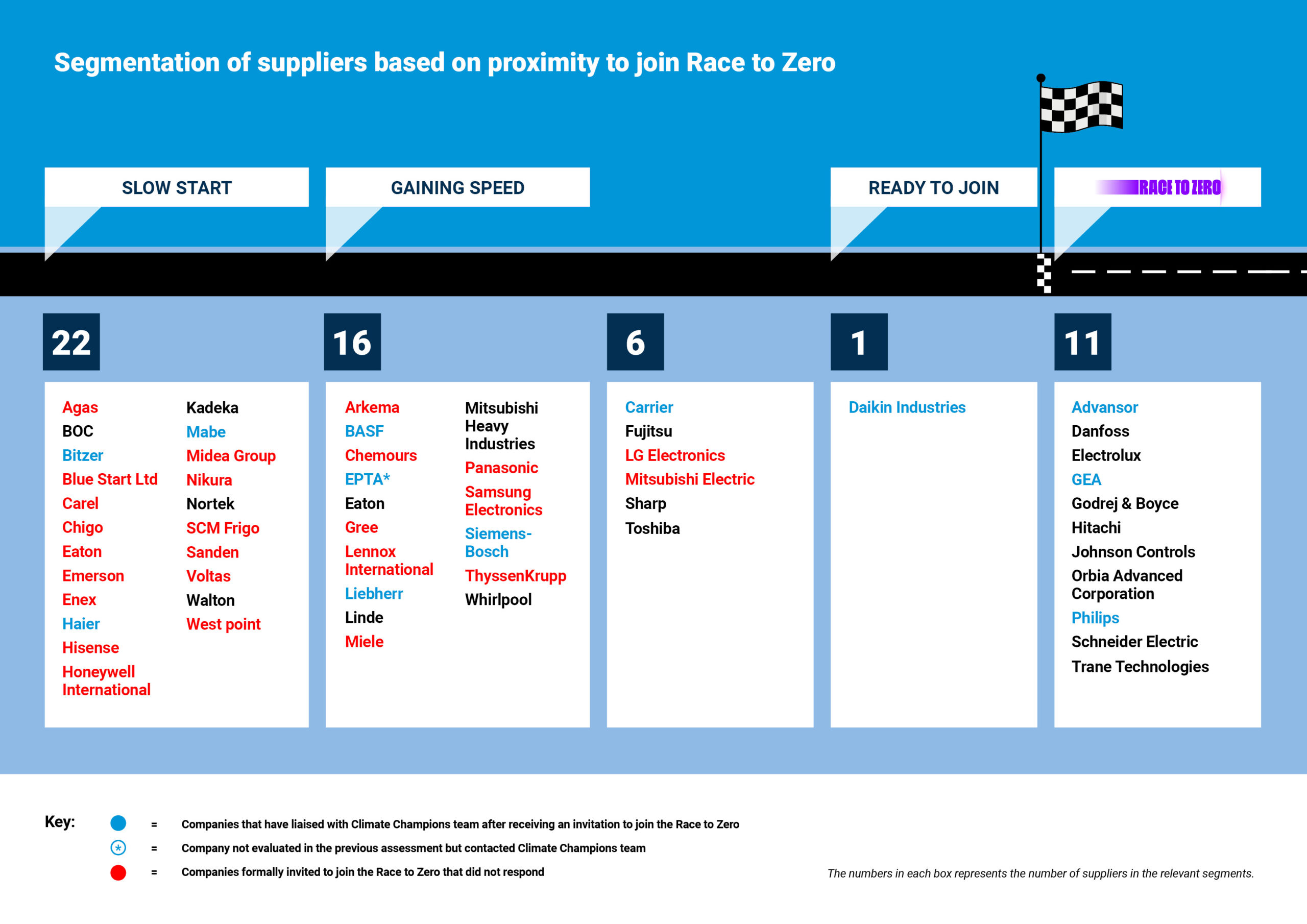We can’t beat the heat with counterproductive cooling solutions
By Climate Champions | October 7, 2021
Heatwaves are enveloping the world with ever increasing frequency and intensity, exposing millions of people yearly to life-threatening impacts. From 1983-2016, extreme heat exposure suffered by the world’s urban population tripled, driven largely by climate change.
We can already see evidence of how this is unfolding. In 2018, of the over 65 year olds, more than 54% died of extreme heat compared to two decades ago. Farm workers have seen more than 302 billion work hours lost in 2019, which is 50% more than in 2000. As a response to this, at this year’s Climate Week NYC, President Biden launched a government-wide effort to protect workers from the under-appreciated dangers of extreme heat.
Unless immediate action is taken to dramatically reduce greenhouse gas emissions, the impacts will be catastrophic across the world. The cooling sector has a major role to play in this.
Cooling is critical to protect us from harmful climate change impacts and maintain our health and productivity. Yet, we can’t afford to beat the heat with solutions that are counterproductive when it comes to mitigating climate change.
The tragic reality is that cooling is heating up the planet further. The sector accounts for 7% of global greenhouse gas (GHG) emissions and the market for cooling appliances is growing rapidly, particularly in developing countries where climates are heating up more quickly and current regulations on equipment efficiency and refrigerant gases are not stringent enough to keep temperatures below 1.5C (nor even 2C either).
The Race to Zero is emboldening companies to make commitments that will put the cooling sector on the path of drastically reducing emissions whilst meeting thermal comfort and refrigeration needs. So far 11 (of 54) major cooling manufacturers have joined the Race to Zero: Advansor, Danfoss, Electrolux, GEA, Godrej & Boyce, Hitachi, Johnson Controls, Orbia Advanced Corporation, Philips, Schneider Electric, Trane Technologies.
These companies are committed to halving their emissions by 2030 in order to meet a net zero target throughout their value chain by 2050. This means that those companies are acting now to supply cooling solutions without harming the environment and heating up our planet.
These companies are leading the way but the rest of the market needs to catch up because 11 companies are not enough to turn the tide. Several of the largest companies such as Daikin Industries, Gree and Haier have not committed yet. Some actively declined an invitation to join the Race to Zero arguing that ‘this is too early for us, we are not ready’.
If not now however, then when? And many of the companies contacted just ignored the invitation.

Others argued that Scope 3 emissions are their main barrier to joining the Race as this represents their largest chunk of emissions (over 80% of emissions come from cooling appliance usage as these consume large amounts of energy from emitting power grids).
Whilst cooling manufacturers have very limited control over grid decarbonization pathways, they can still contribute to deploying more efficient and sustainable solutions at affordable prices to mass markets and start their way to net zero emissions.
Furthermore, cooling companies should be guided by national and utility company net zero emissions commitments which are driving the power sector to fully decarbonise in over 100 countries. This will help sectors, such as cooling, that are highly dependent on the decarbonization of energy consumption related emissions to meet their targets. More information to support cooling suppliers in joining the Race to Zero and addressing their scope 3 concerns and other questions can be found in the Cooling Sector Race to Zero FAQ here.
The clock is ticking. Climate Week NYC 2021 was a loud and clear reminder for companies of the critical role they can and need to play in the Race to Zero. Other actors have also stepped up – over 700 cities are already members of the Race to Zero with many having developed Heat Action Plans. These cities are calling for sustainable cooling solutions as they want to meet their own net zero targets and protect their populations from climate impacts.
The time for more cooling companies to Join the Race to Zero has to be now.


